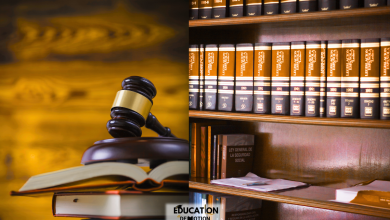Sindh High Court Karachi: A Pillar of Justice in Pakistan

The Sindh High Court Karachi stands as a cornerstone of Pakistan’s legal and judicial system, ensuring justice, fairness, and equity for millions. Located in the bustling city of Karachi, the court serves as the highest appellate court for the province of Sindh. With a rich history, landmark rulings, and a deep commitment to the rule of law, it plays a pivotal role in maintaining constitutional order.
This article delves into the it’s structure, its critical functions, and its importance in the judicial framework of Pakistan. Let’s take a closer look at its history, responsibilities, and how it upholds the principles of justice.
The Historical Legacy of Sindh High Court Karachi
The Sindh High Court Karachi has a legacy deeply rooted in Pakistan’s judicial history. Established in 1906 during the British colonial era, it initially served as the Chief Court of Sindh. Later, it was elevated to the status of a High Court in 1947, following Pakistan’s independence.
The court’s stunning neoclassical architecture, located in the heart of Karachi, is a testimony to its enduring presence. Its foundation was built on the ideals of judicial independence and impartiality. Over the years, the Sindh High Court Karachi has evolved to accommodate the complexities of modern legal challenges while staying true to its foundational values.
Jurisdiction and Authority:
It exercises wide ranging jurisdiction, ensuring the enforcement of legal and constitutional rights. Its authority encompasses:
- Appellate Jurisdiction: The court hears appeals against decisions from lower courts, ensuring justice through a fair review process.
- Writ Jurisdiction: Individuals and organizations can file writ petitions for the enforcement of their fundamental rights.
- Supervisory Jurisdiction: It monitors the functioning of subordinate courts, ensuring they operate within the boundaries of the law.
These jurisdictions empower the court to protect the rule of law and safeguard citizens’ rights, making it a vital institution in Sindh’s governance structure.
Structure of Sindh High Court Karachi
The court operates under a well defined hierarchy, ensuring smooth functioning:
Chief Justice and Judges
The Sindh High Court Karachi is headed by a Chief Justice, supported by a team of judges. These judges are appointed based on merit, legal expertise, and judicial experience.
Benches and Divisions
The court comprises single, divisional, and full benches that handle specific cases, ranging from civil to criminal matters.
Subordinate Courts Supervision
It oversees subordinate courts like civil and sessions courts across Sindh, ensuring judicial transparency and accountability.
The meticulous structure of the Sindh High Court Karachi ensures that legal processes are streamlined and justice is delivered efficiently.
More About; Supreme Court of Pakistan
Role of Sindh High Court Karachi in Upholding Justice
The Sindh High Court Karachi plays a pivotal role in ensuring that justice prevails. Its responsibilities include:
- Upholding Constitutional Rights: The court actively protects the constitutional rights of individuals and groups.
- Landmark Decisions: Over the years, the court has delivered judgments that have shaped legal precedents in Pakistan.
- Resolving Disputes: It acts as a mediator in resolving disputes involving civil, criminal, and constitutional matters.
With these roles, the court not only addresses grievances but also reinforces public trust in the judiciary.
Significant Cases and Precedents
The Sindh High Court Karachi has been at the center of numerous landmark rulings. These include cases related to human rights, freedom of speech, and electoral disputes. Some notable cases include:
- Human Rights Cases: The court has taken a proactive stance in protecting the rights of minorities and marginalized groups.
- Public Interest Litigation: It has intervened in cases involving environmental concerns and governance issues.
These rulings underscore the court’s commitment to justice, equity, and societal welfare.
Challenges Faced by Sindh High Court Karachi
Despite its critical role, it faces several challenges:
- Case Backlogs: A significant number of pending cases affect the timely delivery of justice.
- Limited Resources: Infrastructure and staffing constraints hinder operational efficiency.
- External Pressures: Ensuring judicial independence amid external influences remains a persistent challenge.
Addressing these challenges is crucial for enhancing the court’s effectiveness and maintaining public trust in the judiciary.
How Sindh High Court Karachi Promotes Legal Awareness
Legal awareness is a cornerstone of a just society, and the Sindh High Court Karachi actively promotes it through:
- Public Seminars: Hosting workshops and seminars to educate citizens about their legal rights.
- Accessibility Initiatives: Simplifying processes to make the judiciary accessible to all, including marginalized communities.
- Digital Transformation: Introducing e-courts and online case management systems to modernize legal proceedings.
These efforts ensure that citizens are well-informed and can seek justice when needed.
Impact of Sindh High Court Karachi on Society
It influence extends beyond legal rulings. Its impact is felt across society in various ways:
- Social Justice: The court has consistently upheld social justice by addressing inequalities.
- Good Governance: It holds public officials accountable, promoting transparency in governance.
- Economic Growth: By resolving commercial disputes efficiently, the court fosters a business-friendly environment.
The court’s contributions to societal well-being underscore its role as a pillar of democracy and justice.
The Future of Sindh High Court Karachi
As Pakistan continues to evolve, the Sindh High Court Karachi must adapt to emerging challenges. Key areas of focus include:
- Technology Integration: Expanding e-court systems for faster and more transparent proceedings.
- Capacity Building: Enhancing the skills and resources of judicial staff.
- Policy Reforms: Implementing measures to reduce case backlogs and improve judicial efficiency.
With these advancements, It can continue to uphold justice effectively in the 21st century.
Conclusion
The Sindh High Court Karachi is not just a building; it is an institution that embodies justice, equality, and the rule of law. Its rich history, significant contributions, and unwavering commitment to constitutional principles make it a cornerstone of Pakistan’s judiciary.
Despite the challenges it faces, the court’s resilience and dedication to justice inspire hope for a fairer and more equitable society. As it embraces modern reforms and addresses societal needs, it will undoubtedly continue to play a pivotal role in Pakistan’s journey toward a just and prosperous future.
FAQs
What is the role?
The Sindh High Court Karachi serves as the highest appellate court in Sindh, ensuring justice through appellate, writ, and supervisory jurisdictions.
How many judges are there in Court?
The number of judges varies but includes a Chief Justice and other experienced judges appointed on merit.
What challenges does it face?
Key challenges include case backlogs, limited resources, and ensuring judicial independence amid external pressures.
What are some landmark rulings by it?
The court has delivered significant judgments on human rights, public interest litigation, and constitutional matters.
How does it promote legal awareness?
The court organizes seminars, simplifies judicial processes, and embraces digital technology to enhance legal awareness.
What is the jurisdiction of this court?
The court exercises appellate, writ, and supervisory jurisdiction, ensuring legal and constitutional compliance.




